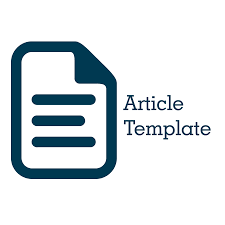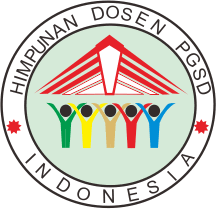Profil produktivitas belajar peserta didik sekolah dasar dalam ekosistem pembelajaran kolaboratif
Abstract
Collaboration is one of the 4C skills needed for the development of learning to respond to the interests of students' adaptation to the 21st-century environment. One aspect of collaboration that can be reviewed in learning using problem-based learning in groups is the aspect of working productively. This study describes the aspects of working productively in collaboration skills in class VI students of SD Negeri Setono using Greenstein's perspective, especially in problem-based learning. This research is a type of research with a descriptive qualitative approach. The subjects of this study were students and teachers of class VI at SD Negeri Setono Surakarta. Collection techniques in this study were observation, interviews, questionnaires, and documentation studies. The Data validity testing technique uses technique and source triangulation. The collected data were then analyzed using the interactive data analysis technique of the Miles and Huberman model. The results of this study indicate that students can work productively in problem-based learning designed in groups. This can be seen from the emergence of all aspects of indicators of working productively in learning activities. The productivity shown by students is supported by other aspects of collaboration skills.
Keywords
Full Text:
PDFReferences
Widodo, S., & Kusuma Wardani, R. (2020). Mengajarkan Keterampilan Abad 21 4C (Communication, Collaboration, Critical Thinking and Problem Solving, Creativity and Innovation) Di Sekolah Dasar. MODELING: Jurnal Program Studi PGMI, 7(2), 187. [2] Saenab, S., Yunus, S. R., & Husain, H. (2019). Pengaruh Penggunaan Model Project Based Learning Terhadap Keterampilan Kolaborasi Mahasiswa Pendidikan IPA. Biosel: Biology Science and Education, 8(1), 29. [3] Fitriyani, D., Jalmo, T., & Yolida, B. (2019). Penggunaan Problem Based Learning untuk Meningkatkan Keterampilan Kolaborasi Dan Berpikir Tingkat Tinggi. Jurnal Bioterdidik: Wahana Ekspresi Ilmiah, 7(3), 77–87. [4] Shoimin, Aris. 68 Model Pembelajaran Inovatif dalam Kurikulum 2013, (Yogyakarta: Ar-Ruzz Media, 2014), hlm. 130 [5] Sumartini, T. S. (2015). Peningkatan kemampuan penalaran matematis siswa melalui pembelajaran berbasis masalah. Mosharafa: Jurnal Pendidikan Matematika, 4(1), 1-10. [6] Zubaidah, S. (2016). Keterampilan Abad Ke-21: Keterampilan Yang Diajarkan Melalui Pembelajaran. [7] Apriyono, J. (2013). Collaborative learning: A foundation for building togetherness and skills. Jurnal Pendidikan Luar Sekolah, 17(1), 292–304. [8] Laura M. Greenstein. (2012). Assessing 21st Century Skills: A Guide to Evaluating Mastery and Authentic Learning. In Corwin Press. [9] Ilma, S., Al-Muhdhar, M. H. I., Rohman, F., & Saptasari, M. (2022). Students Collaboration Skills in Science Learning. Proceedings of the 2nd International Conference on Innovation in Education and Pedagogy (ICIEP 2020), 619(Iciep 2020), 204–208. [10] Rahmawati, A., Fadiawati, N., & Diawati, C. (2019). Analisis Keterampilan Berkolaborasi Siswa SMA pada Pembelajarn Berbasis Proyek Daur Ulang Minyak Jelantah. Jurnal Pendidikan Dan Pembelajaran Kimia, 8(2). [11] Pang, J. Lau, C. P. Seah, L. Cheong,andA. Low, “Socially Challenged Collaborative Learning of Secondary School Students in Singapore,” Educ.Sci., vol. 8, no. 24, 2018. [12] E. R. Lai, “Collaboration: A LiteratureReview,”Pearson, 2011. [13] E. Retnowati, P. Ayres, and J.Sweller, “Can collaborative learning improve the effectiveness of worked examples in learning mathematics?,”J.Educ. Psy., vol. 109, pp.666–679,2017. [14] F. Rimoni, and R. Averill, “RESPECT: A Value Vital for Pasifika Learners,” Research Information for Teachers, vol. 3, pp. 3-11, 2019. [15] C. M. Evans, “Measuring student success skills: A Review of the Literature on Collaboration 21st Century Succes Skills,”National Center for the Improvement of Educational Assessment, 2020.
Refbacks
- There are currently no refbacks.



